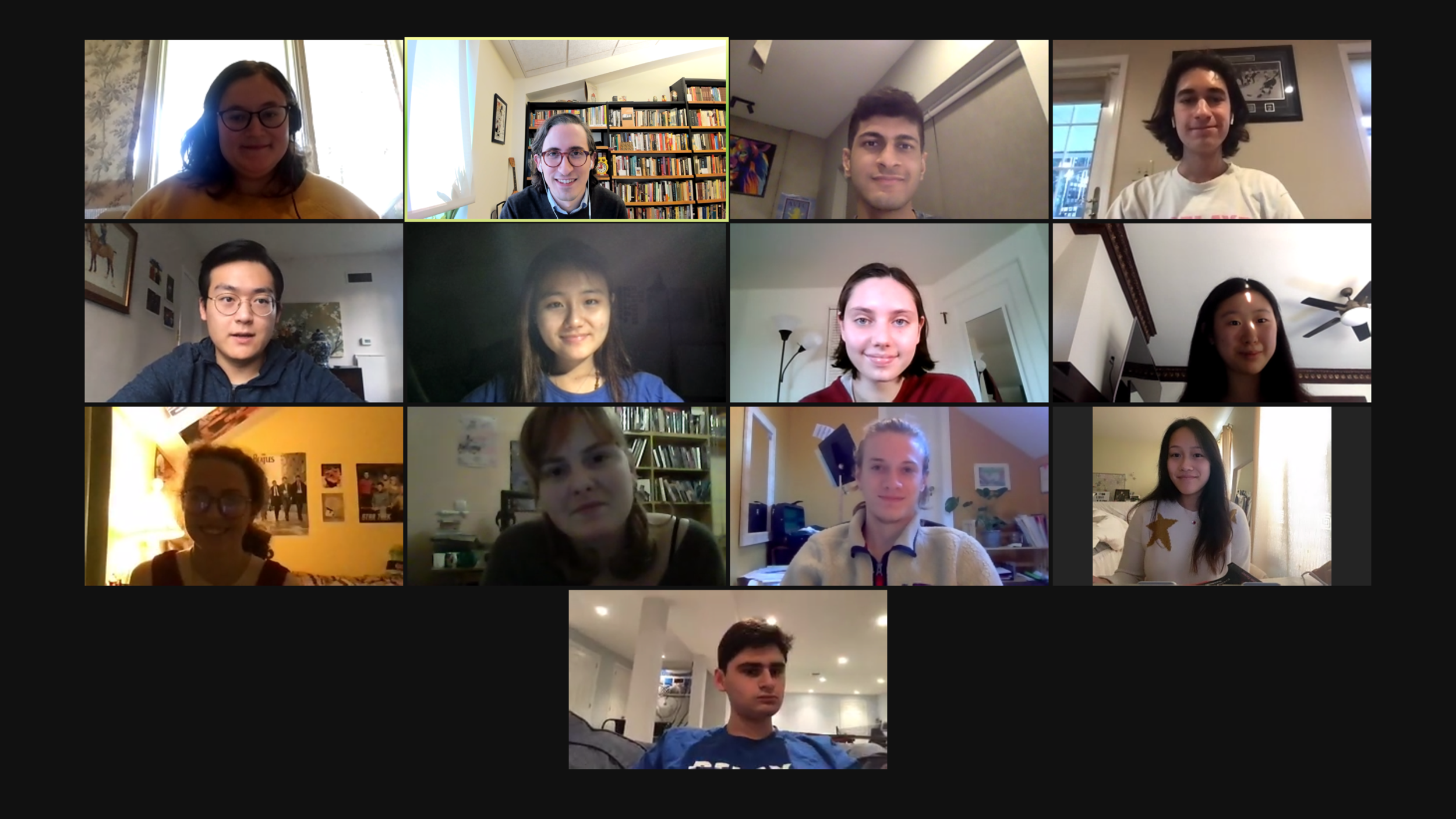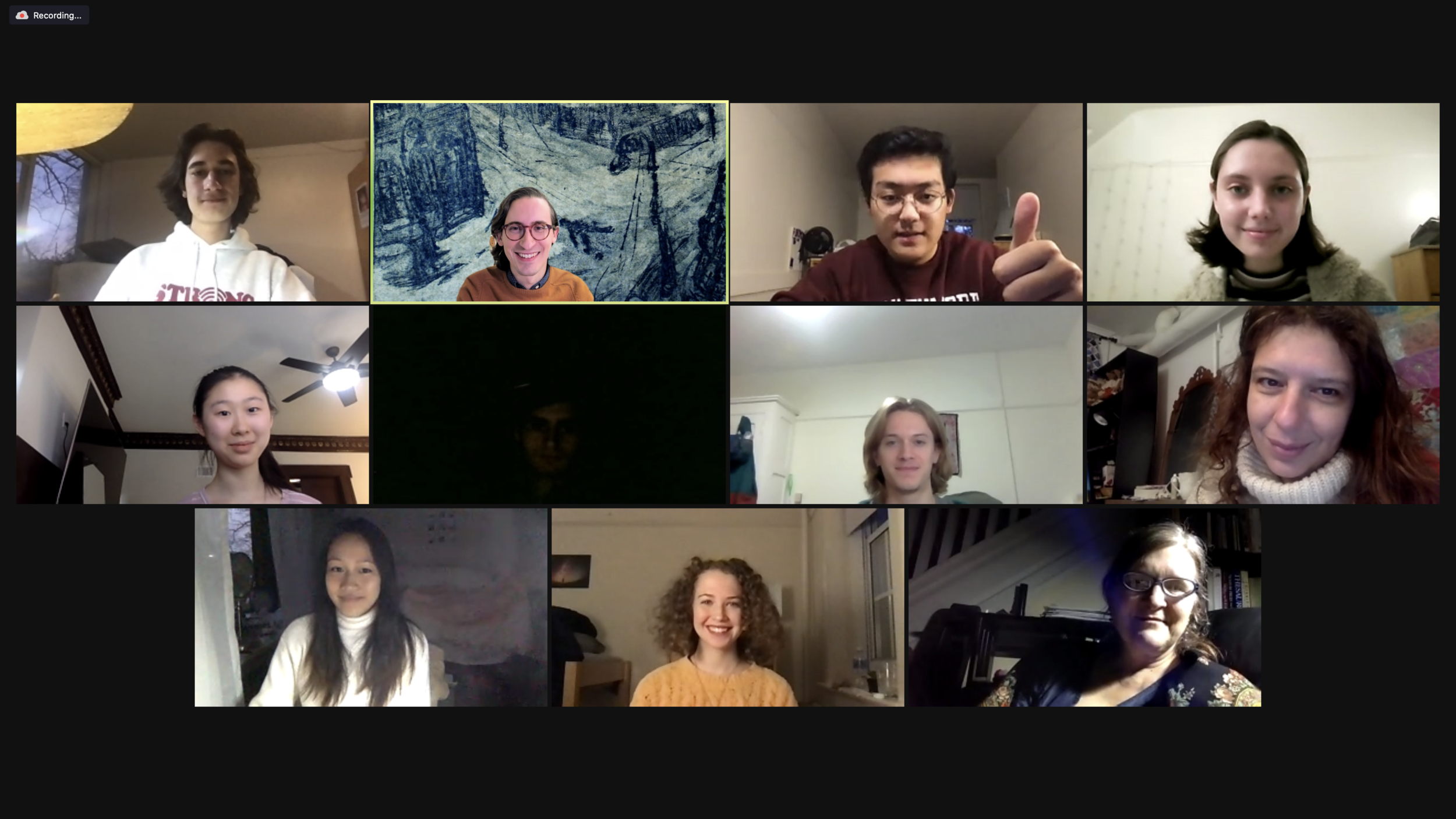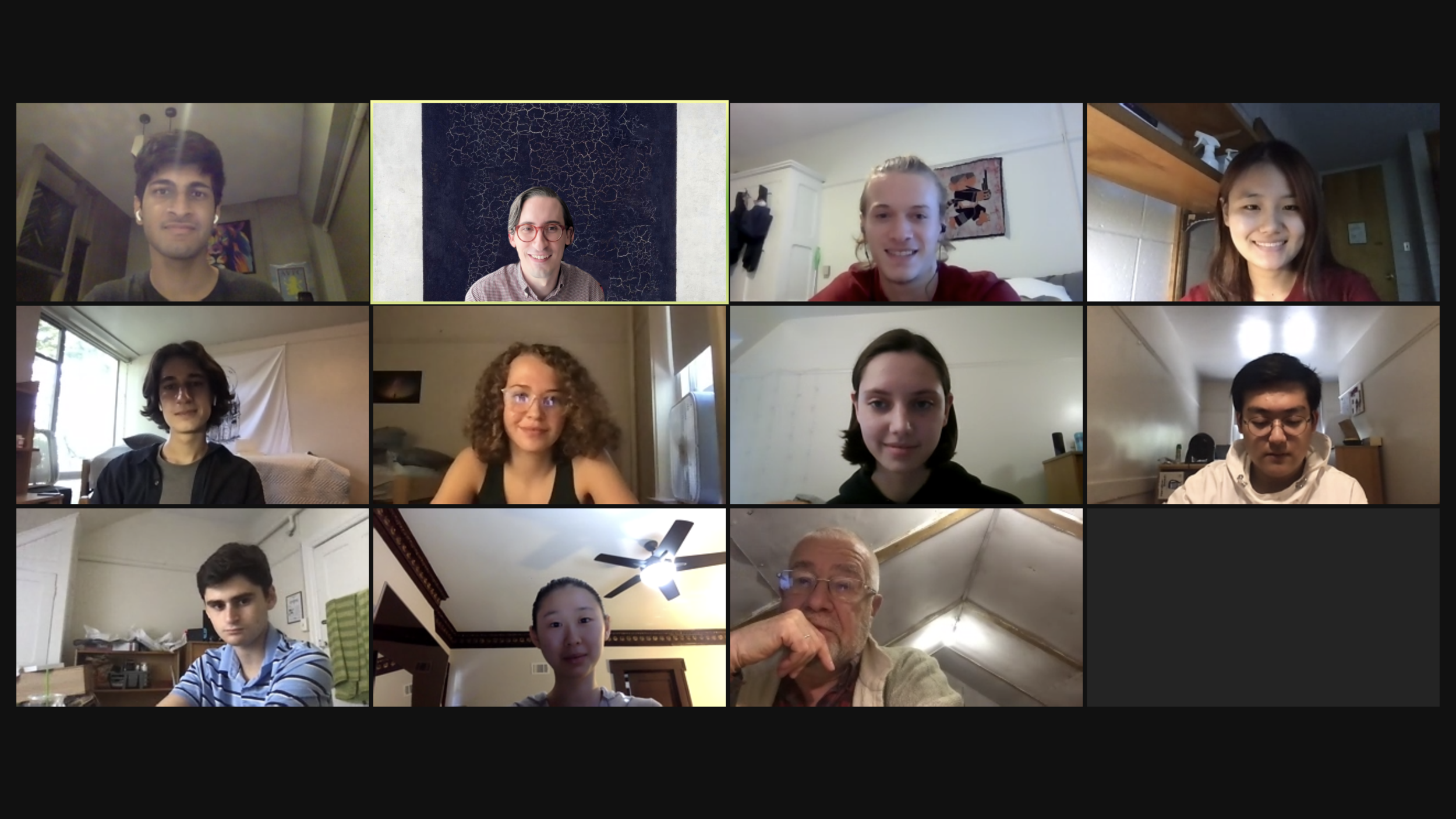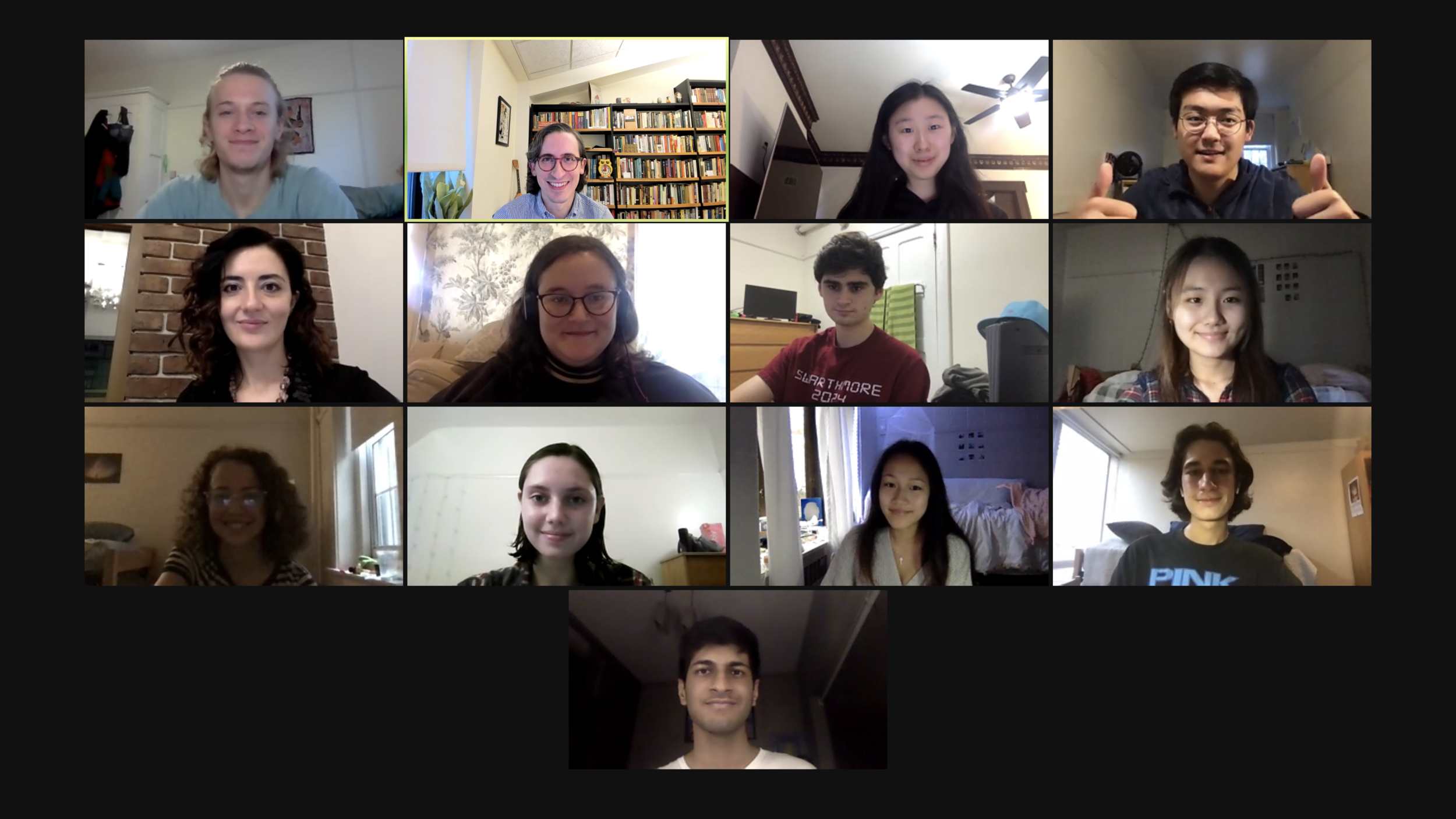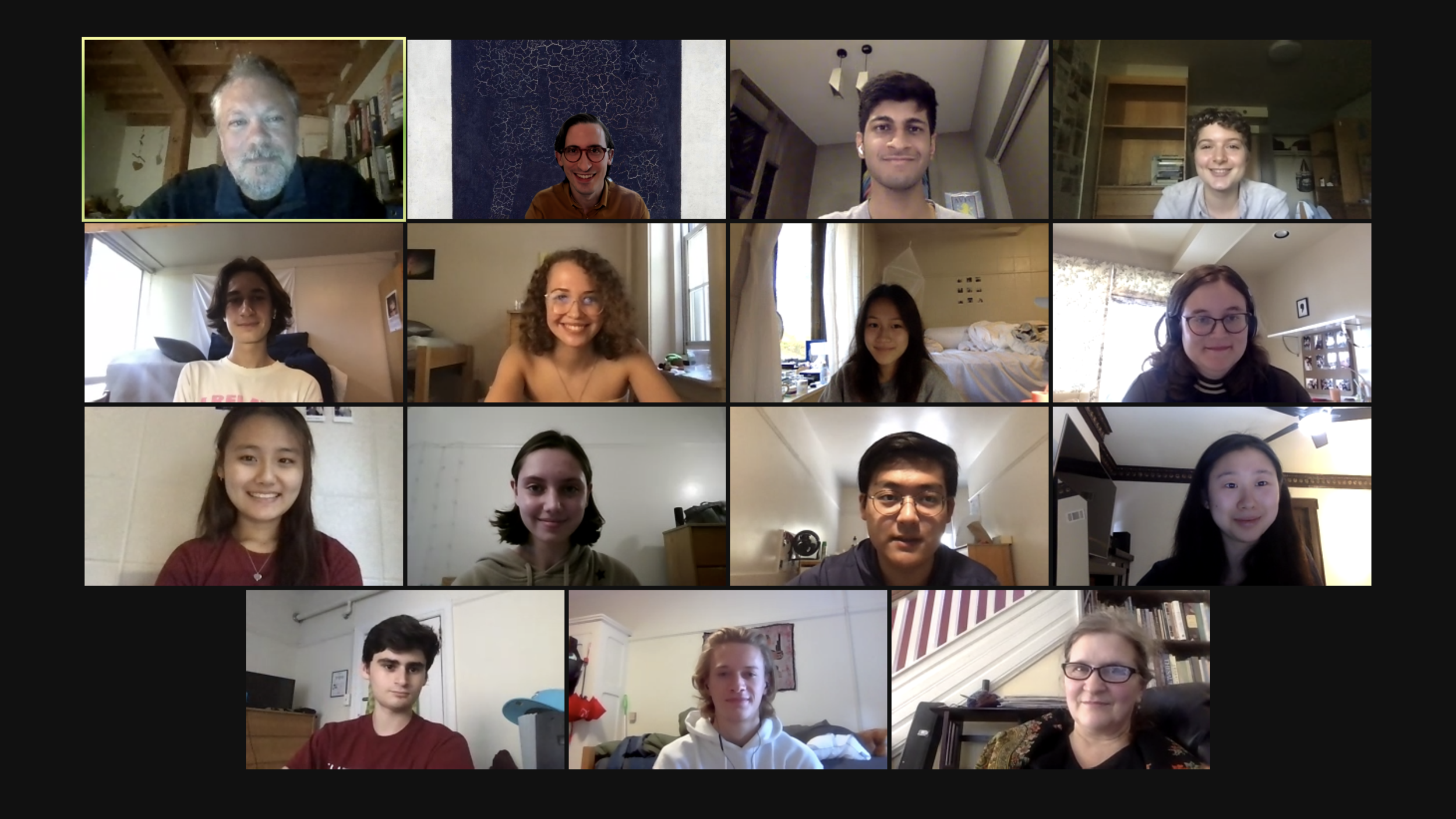METHODS &
SAMPLE COURSES
Generally speaking, I view myself as a collaborator and facilitator—Alison King’s “guide on the side”—rather than as an instructor in the strict sense of the word. By holding students to high standards and challenging them to see and develop alternative ways of thinking no matter the subject, I strive to aid them in their individual academic careers and personal goals.
The interaction between text and context greatly informs my teaching methods. In my literature and culture classes, students are asked to consider both the peculiarities of the materials at hand, as well as the various circumstances that played a role in their creation. In this way, I endeavor to provide three main concepts: 1. knowledge of the texts along with relevant background developed through a combination of close reading, reflection, and discussion; 2. an understanding of various means of literary analysis; and 3. the awareness that each person can craft an interpretation and is not dependent on me for one “true” answer to any given question.
In language courses, I likewise emphasize a communicative approach along with grammatical mastery. I help students to develop the skills necessary for long-term success, personalized language use, and independent learning. Role-play activities and authentic materials (texts, film clips, music, etc.), among other tools, feature prominently in my language classes of all levels.
Screenshot of interview with Evgeny Vodolazkin and Lisa Hayden in RUSS014 (Fall 2020, Swarthmore College)
The following are only a few of the courses I have offered at various institutions. For a complete list of classes taught, please see my CV. Sample syllabi available upon request.
Chornobyl
What really happened on April 26, 1986? This course introduces students to the Chornobyl nuclear disaster, its consequences, and its representations across a range of cultures. Texts are drawn from (non-)fiction, poetry, film, TV, video games, VR, and other media, as we consider Chornobyl’s mythology through a comparative lens and as a global phenomenon. Culture meets ecology, science, history, and politics.
For the final class project, students contributed to a physical exhibition installation and a digital project website: The Reactor Room: An Immersive Chornobyl Exhibition.
Featured guest lectures and conversations by Elizabeth Plantan, Chad Gracia, and Aaron Weiss, several film screenings (in-person and virtual), and a field trip to Limerick Generating Station.
Crime or Punishment: Russian Narratives of Incarceration
While the Gulag remains the most infamous aspect of the Soviet justice system, Russia has a long history of inhumane punishment on a terrifying scale. This course explores narratives of incarceration, punishment, and captivity from the 17th century to the present day. In discussing (non-)fiction, history, and theory, we consider such topics as justice, violence and its artistic representations, totalitarianism, witness-bearing, and the possibility of transcendence in suffering. Readings include works by Dostoevsky, Tolstoy, Chekhov, Akhmatova, Nabokov, Solzhenitsyn, Pussy Riot, Foucault, Arendt, Sontag, and Davis among many others.
Final class project: Scalar site + StoryMap of the history and spread of Russian prison narratives
Featured class visits by Oleg Navalny, Kirill Medvedev, and Ali Feruz; a lecture by Victoria Lomasko; a screening of Marianna Yarovskaya’s documentary film Women of the Gulag; and a class trip to Eastern State Penitentiary.
Ecological Displacement in Russophone Literature
Our era of immense environmental upheaval is striking in its urgency and scale, but it is, of course, far from unprecedented. In this class, we'll consider the effects of ecological displacement, both real and imagined as portrayed in Russophone literature; its ties to solastalgia, nostalgia, and the condition of exile; art as a form of conservation; and historical and environmental issues in the region.
Featured class visits by Svetlana Alexievich, Julia Nemirovskaya and Boris Dralyuk, Elizabeth Rush, and Darya Tsymbalyuk.
Back to the Future: Contemporary Russian Culture & Society
History, politics, and culture. Cats and refugees. A brain surgery and drunken memories of the Soviet era. Crime scene reenactments as a career choice. Russia’s future as a reprise of the age of Ivan the Terrible. The Russo-Japanese War. Ethnic conflict, fundamentalism, and a wall between Dagestan and the rest of Russia. The Leningrad Siege. Feminism, environmental catastrophe, and everyday life in Eastern Europe. Hailed as the “end of history” and “the greatest geopolitical tragedy of the 20th century,” the fall of the Soviet Union forced Russia to reconcile a past that had long been suppressed with a present reality full of possibility. In this course, we untangle the drama of these last 30 years and Russia’s role in the world today.
Featured class visits from Galina Rymbu, Alisa Ganieva, Mikhail Shishkin, Polina Barskova, Sergei Gandlevsky, and Ksenia Buksha.
